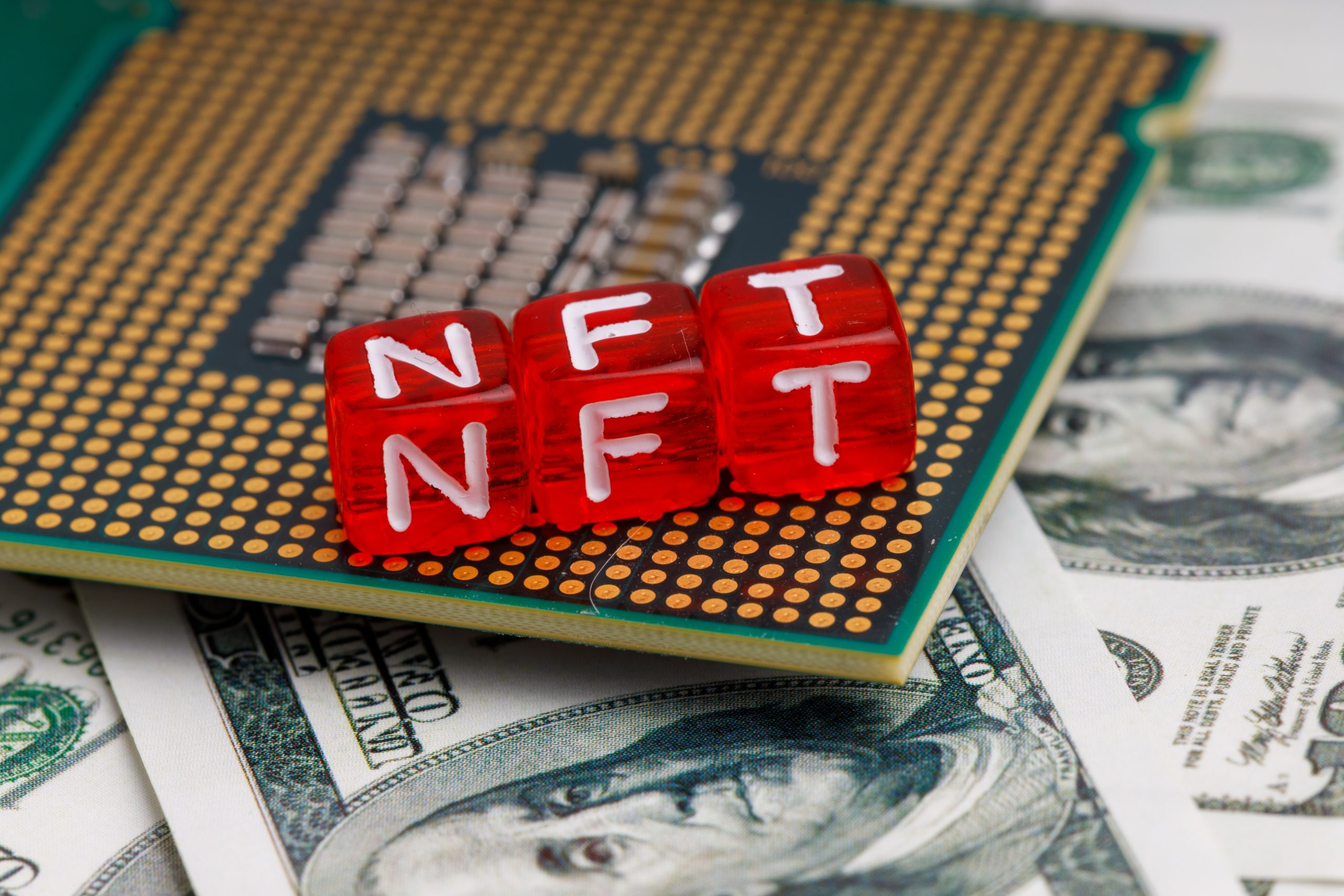Welcome to the future! Cryptocurrency continues to gain popularity (see our previous article here), the Metaverse is constantly expanding, and NFTs (Non-Fungible Tokens) are trending.
Blockchain technology is on track to become the most impactful innovation since the internet (and for charities specifically, since the “donate now” button) and has been a catalyst in creating recent generational wealth.
While the cryptocurrency markets experience volatility, NFT sales have skyrocketed over the past year, which has led to an increased interest in contributions of NFT charitable tokens (or proceeds from the sale of NFTs) despite the last month’s substantial decline in market value.
What is an NFT?
At this point, it’s hard not to have heard of NFTs.
NFTs are unique digital tokens that are documented and transferred using Blockchain technology, the same technology that is the basis of digital currencies like Bitcoin.
Because each NFT is uniquely identified on the blockchain, it is not fungible with any other NFT or asset. A good way to think of an NFT is as a deed to a digital asset, such as a work of art. The NFT is used to keep track of the file’s history through a blockchain ledger, allowing someone to prove ownership of the unique asset.
NFP’s Interest in NFTs
Noncash donations are not a new concept for Not-for-Profit (NFP) organizations (tax-exempt organizations); however, the COVID-19 pandemic has necessitated innovation in virtual ways to engage donors and solicit contributions. This, combined with increased crypto popularity, has led to a few years of very creative fundraising, including through NFTs.
Charitable Partnerships
To overcome any obstacles to direct donations of NFTs, some charities are leveraging partnerships with NFT creators.
Rather than contributing NFTs directly to a charity, creators sell NFTs, with all or a portion of the proceeds donated to the charity. If desired, through the use of smart contracts built into the NFTs, creators can ensure that a percentage of the sales price will go to charity, in perpetuity, every time the asset is sold. This type of generosity may result in state charitable registration and or commercial co-venture returns.
Some charities are creating their own NFTs and auctioning them off or including them as part of charitable packages to donors. These organizations should be careful to consider whether this represents any return benefit that would reduce the value of the donor’s deductible contribution.
The NFT as a Tax-Exempt Organization Investment
As with other noncash donations, donors may want to donate the NFT directly to the tax-exempt organization.
Although many organizations would immediately convert the NFT to cash, there may be certain instances in which a charity would want to retain an NFT, such as an art museum that would make the NFT part of its collection, or as an investment.
How are NFT Contributions Reported?
Although they are growing in popularity, when it comes to using NFTs for charitable fundraising, we are still somewhat in the “wild West,” and there isn’t much guidance related to these unique assets or their valuation.
Lacking specific guidance on the treatment of NFT donations, tax-exempt organizations have looked to the rules regarding charitable contributions of cryptocurrency for direction. Under the rules for deductibility and valuation contributions of crypto are treated the same as other noncash property contributions.
What Steps Should We Take to Prepare for NFTs?
Charities must be proactive and take steps to address the following concerns relating to donations of NFTs and cryptocurrency before they find themselves approached by donors and required to make rushed decisions.
Is This The Right Time?
Although this is likely to be on everyone’s agenda at some point, each tax-exempt organization is unique, and some organizations may find that their limited resources are better focused elsewhere for now.
Policies and Procedures
When an organization decides that it is the right time to venture into crypto, a key step is determining whether accepting cryptocurrency is allowable based on your current gift acceptance policy.
Before accepting any cryptocurrency gifts, the gift acceptance policy may need to be revisited (or if a policy is not in place, consider adopting one). In determining whether updates are necessary or if starting from scratch, address the following concerns:
- Establish whether the NFP will immediately convert cryptocurrency or NFTs to Fiat currency or hold these assets either as an investment or programmatically (such as a museum displaying NFT artwork). Decide whether the NFP will work with a third-party platform or open its own wallet and manage these assets directly (more on this below).
- Determine which cryptocurrencies the NFP will accept (most commonly Bitcoin).
- Analyze whether the digital asset in consideration aligned with the NFP’s charitable mission
- For example, an environmental organization may have concerns about accepting a cryptocurrency that uses large amounts of fossil fuel energy in its mining.
Evaluating Whether to Accept Direct Donations
As noted above, a key consideration is whether an organization wants to accept these donations directly or through a third-party platform.
Accepting direct contributions of NFTs and cryptocurrencies would require a charity to open its own crypto wallet and take direct ownership of the asset. This allows the charity to benefit from the digital asset’s appreciation but conversely to suffer from its drops in value.
When crypto donations are accepted through a third-party platform, the organization can choose to only ever take custody of Fiat currency and avoid the volatility of digital assets.
Reporting Obligations
As noncash donations, NFTs require donors to carefully document the amount and type of their contributions.
Analogous to any noncash contribution, crypto gifts of more than $250 require a contemporaneous written acknowledgment from the charity, and more than $5,000 require a qualified appraisal. Organizations must also address the value of goods and or services received by the donor in exchange for their gift, similar to any other gift acknowledgment, but should never opine on the value of the donation.
In addition, tax-exempt organizations must report the NFTs and cryptocurrency they receive as noncash donations on both the Statement of Revenue, and in detail on Schedule M, of their Form 990.
#WithumBytes
As cryptocurrency continues its rising popularity and NFT markets expand, it’s clear that Blockchain technology is making a significant impact and it’s only just begun. Both due to the wealth and the innovative ways of giving these digital assets are creating, it is clear crypto, and NFTs are going to have a significant impact on the future of charitable giving. With that in mind, it is critical that organizations proactively address these concerns over crypto and NFTs now so that they are prepared for what very well may be the future (or present!) of charitable giving.
Contact Us
For more information on this topic, please contact a member of Withum’s Not-For-Profit team.




